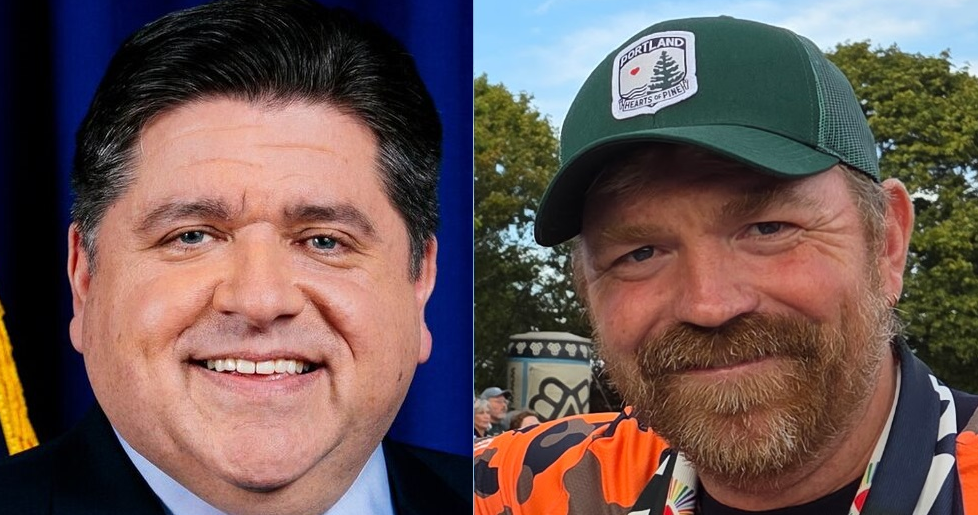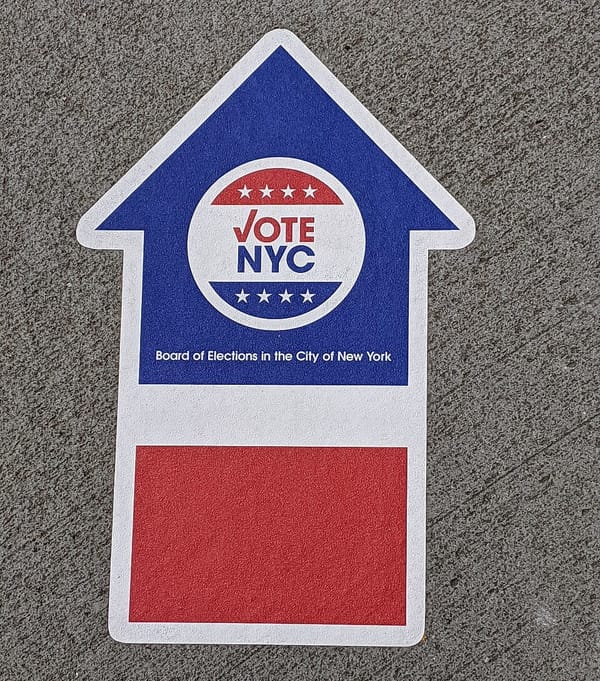Pritzker, Platner announce support for growing "prosecute ICE" movement
Illinois governor JB Pritzker, Maine Senate candidate Graham Platner, and Colorado Attorney General candidate David Seligman have all publicly discussed bringing charges against ICE agents.

Over the last two months, Americans across the country have been demanding that their state attorneys prosecute ICE agents for violations of state and federal laws such as breaking and entering, unlawful use of force, illegal detainment, and assault.
This week, politicians such as Illinois governor JB Pritzker, leading Maine Senate candidate Graham Platner, and Colorado Attorney General candidate David Seligman, have added their voices.
On Sunday, Governor Pritzker told FOX32 Chicago that state prosecutors are "looking at" prosecuting immigration agents: "We’re talking to the state's attorneys and Attorney General to see how they can go at this because what we want to make sure is that they follow the law".
"We’re talking to the state's attorneys and Attorney General to see how they can go at this because what we want to make sure is that they follow the law."
The same day up in Maine, Platner shared a video of comments he made at a town hall about prosecuting ICE: "One of the reasons I want to go to the Senate is that when we have power again, I want to haul all of these people and the ones that made them do it in front of a Senate subcommittee, make them take their masks off”.
"One of the reasons I want to go to the Senate is that when we have power again, I want to haul all of these people and the ones that made them do it in front of a Senate subcommittee, make them take their masks off."
These comments mark the first time major figures have joined the fray. But Colorado Attorney General candidate David Seligman has been well ahead of them, with social media committing to prosecuting ICE if he's elected posted as early as mid August and as recently as Monday.
In similar news, San Francisco's district attorney told Politico she "won't hesitate" to bring excessive force or other charges against National Guard personnel deployed to her city if appropriate.
Pritzker's and Platner's comments received tens of thousands of upvotes and hundreds of favorable comments Tuesday on forum website Reddit.
The politicians' remarks come after months of nationwide social media activity, blog posts, and letters to officials and newspapers demanding ICE prosecution.
Examples include videos reacting to ICE's arrests of firefights in Washington state, a letter to Indiana Congressmen Todd Young, Jim Banks and Andre Carson, a letter to the editors of the San Francisco Chronicle, and a letter to Washington governor Bob Ferguson and Congresspeople Shelley Kloba, Derek Stanford and Davina Duerr.
Particularly influential was the article "Democratic Governors Can Order the Arrest of ICE Agents. What Are They Waiting For?" on Christopher Armitage's Substack publication The Existentialist Republic.
The article has over 4,000 likes and 300 comments as of Wednesday and makes both legal and political cases for why the strategy would be successful for slowing down ICE arrests: "The goal is creating institutional friction, making every raid slower, more cautious, more legally careful".
"The goal is creating institutional friction, making every raid slower, more cautious, more legally careful"
Armitage cites historical precedents and suggests a course of actions for readers who want to see the strategy implemented: "Call your governor or attorney general and say exactly this: 'Federal agents are committing state felonies including burglary, kidnapping, and assault. File criminal charges now... We elected you to protect us. Do it.'"
"Call your governor or attorney general and say exactly this: 'Federal agents are committing state felonies including burglary, kidnapping, and assault. File criminal charges now... We elected you to protect us. Do it.'"
Social media reaction to Pritzker and Platner's comments has been overwhelmingly positive, but some have wondered whether ICE prosecution is realistic, based on concerns related to the Constitution's Supremacy Clause, the possibility of presidential pardons, or the willingness of elected officials to actually initiate charges.
An explainer by University of Wisconsin Law School Staff Attorney Bryna Godar clarifies that many actions of federal officials are not defensible under the Supremacy Clause, and that even unsuccessful prosecutions may still be effective:
"This principle only applies when federal officials are reasonably acting within the bounds of their lawful federal duties. When federal officials act beyond the scope of their duties, violate federal law, or behave in an egregious or unwarranted manner, state prosecutions can move forward. Even where charges are ultimately dismissed, states have occasionally used prosecutions as a form of pushback against controversial federal actions."
"[The Supremacy Clause] only applies when federal officials are reasonably acting within the bounds of their lawful federal duties. When federal officials act beyond the scope of their duties, violate federal law, or behave in an egregious or unwarranted manner, state prosecutions can move forward. Even where charges are ultimately dismissed, states have occasionally used prosecutions as a form of pushback against controversial federal actions"
Presidential pardons wouldn't thwart prosecutors either, as Armitage points out: "Factually, Trump can’t pardon state crimes. The president’s pardon power only covers federal offenses. State prosecutions are completely beyond MAGA reach."
"Factually, Trump can’t pardon state crimes. The president’s pardon power only covers federal offenses. State prosecutions are completely beyond MAGA reach."
On the other hand, whether elected officials such as governors and attorneys general would actually initiate prosecution remains to be seen. Hesitance on their part is likely due to anticipation of extreme retaliation by President Trump, especially given his recent attempts to label political opposition as terrorism.
In the past he's made threats — and often acted on them — such as to arrest Democratic officials, withhold funding declare martial law, suspend habeas corpus, and militarily occupy cities. And although these actions have generally been blocked by the courts in the times he's actually followed through on his threats, arrests of the agents of his signature immigration campaign might lead to new levels of desperation.
Because of the credible, though not guaranteed, threat of significant retaliation by Trump, elected officials considering prosecution of ICE agents will likely want to first see overwhelming levels of public support before enacting the strategy. By ensuring the public in their state is fully committed, they reduce the risk of being blamed for a reactionary escalation in authoritarianism by Trump.
While it remains to be seen if public support for ICE prosecution will reach the necessary levels, the intensely positive reaction to Pritzker and Platner's initial trial balloons is a strong start.
Know of other politicians who support ICE prosecution or prominent social media posts on the topic? Leave a comment or email tylerdouglasnyc@proton.me.





